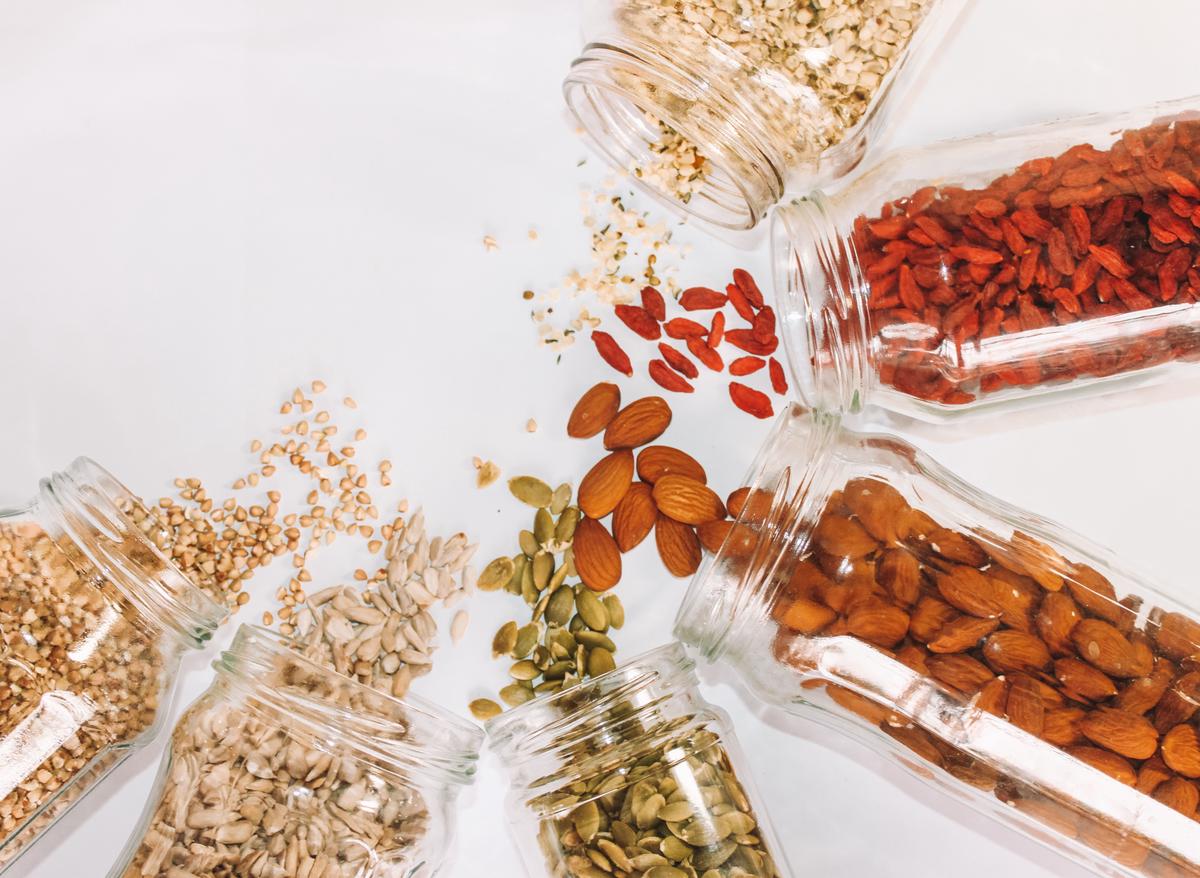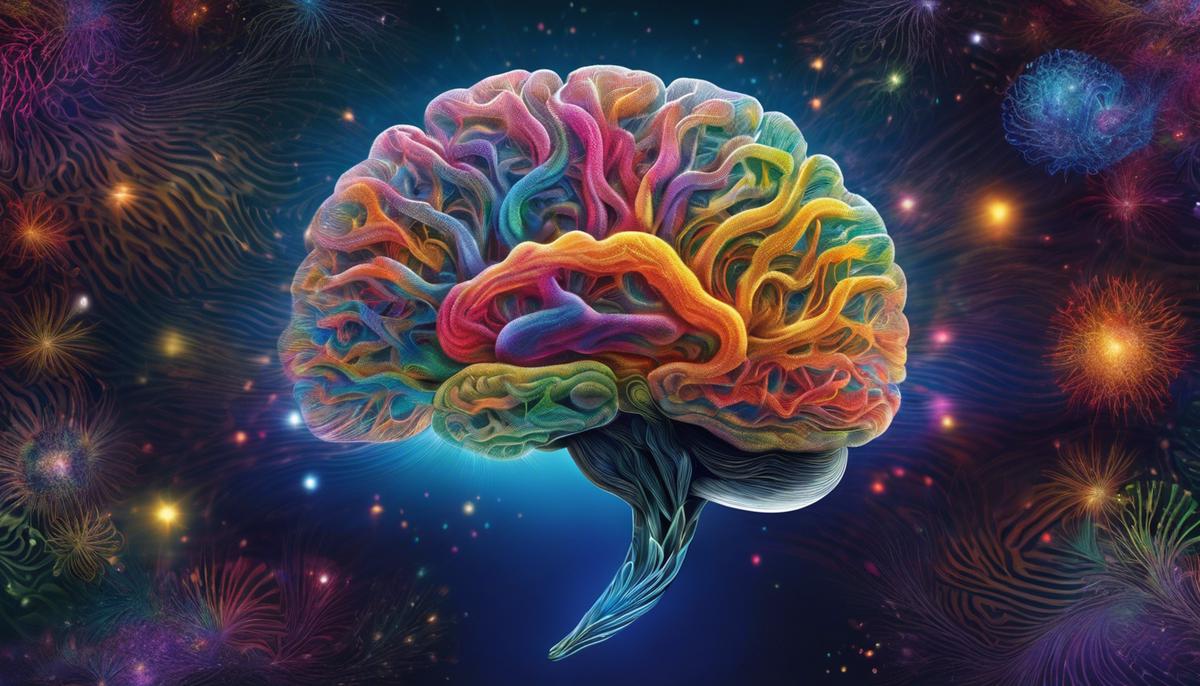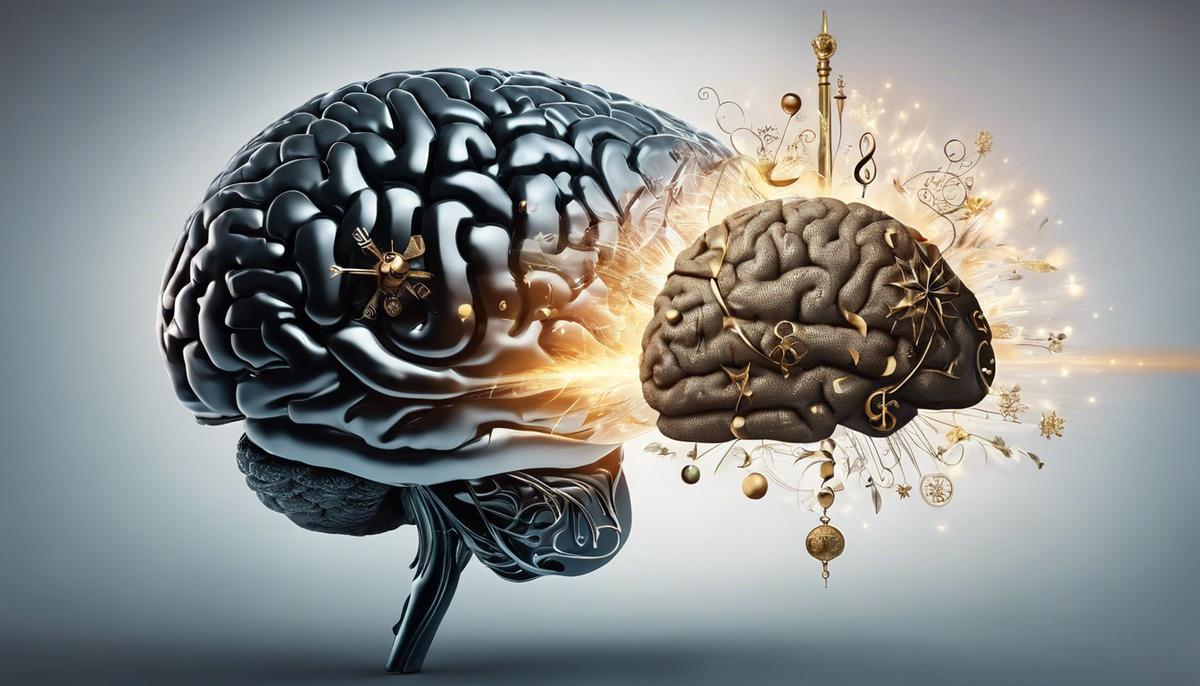The enigma of dreams has fascinated humanity since time immemorial. A labyrinth of subconscious musings, dreams are an intriguing phenomenon that hold the potential to unlock the unchartered territories of our minds. This comprehensive discourse centers on the puzzle of ‘Food Dreams’. Specifically, it charts a detailed exploration of the psychological, cultural, and physiological implications of dreaming about food. We venture into the corridors of our mind to understand the intricate neurosciences behind our nocturnal food rendezvous. The discourse also features an advocation for both traditional and modern techniques in the interpretation of food dreams, providing a holistic understanding of this intricate phenomenon.
The psychology behind dreaming about food
An Examination of the Psychological Implications Surrounding Food-Related Dreams
Prominently documented within the folds of dream analysis and interpretation, food-related dreams have been a subject of pervasive inquiry and interest. Undeniably, the consumption and preparation of food is a universal experience, forging a common link across cultures and societies. It is therefore unsurprising that food-based dreams occupy a significant station in the realm of unconscious cognition.
When navigating the labyrinth of food dreams, it is imperative to understand the profound, multifaceted symbolism of food. Food essentially represents sustenance and survival. Yet, beyond mere physiological sustenance, food is frequently a symbol of comfort, indulgence, and emotional satiety, thus highlighting the profound mind-body connections.
Dreams of overeating, for instance, bear considerable psychological implications. These dreams are potentially indicative of feelings of deprivation, emptiness, or a longing for emotional satisfaction. They can be an unconscious expression of a coping mechanism, as the individual subconsciously attempts to ‘fill’ an emotional vacuum or compensate for unfulfilled desires.
In sharp contrast, dreams featuring refusal or inability to consume food may suggest resistance, anxiety, or internal conflicts. Often, they mirror the dreamer’s struggle with real life issues or their ambivalence towards certain emotional realities.
Food’s cultural implications also play substantial roles in shaping dream symbolism. Various foods are associated with certain celebrations, traditional rituals, or rites of passage in diverse societies. Consequently, dreaming of such specific foods could relate to the dreamer’s deep-seated feelings about these cultural significances.
Dreams about food preparation, on the other hand, are intriguing conduits of the unconscious. These dreams typically symbolize nurturing, creativity, or transformation. Thus, they might represent the dreamer’s quest for personal growth or their nurturant aspects.
Furthermore, the type of food consumed in dreams can also bear notable implications. For instance, sweet foods in dreams are frequently interpreted as signifying reward, indulgence, or even guilty pleasures. Contrastingly, bitter or sour foods might suggest disappointments or unpleasant experiences.
Consideration of such interpretations, however, should align harmoniously with the principle of dream individuality. While general trends and patterns in dream symbolism can be identified, the personal context and experiences of the dreamer are integral to accurate and meaningful interpretation.
Indeed, unraveling the profundities encapsulated within dreams is an intricate journey layered with complexities. The realm of food-related dreams, in particular, serves as a poignant testament to the profound linkage between our corporeal experiences and unconscious minds. As we delve deeper into this fascinating field, we continue to unveil the myriad reflections of our psyche embodied in the world of our dreams.

The role of culture and societal norms on food dreams
Exploring the Broader Influences: Society, Culture, and Food Dreams
In the peculiar realm of dream interpretations, only seldom do we manage to address inquisitively the impact of sociocultural factors on the nature of our nocturnal nurturance—food dreams. Whilst psychological underpinnings and their explanations paint a comprehensive picture, a deeper understanding remains appendant to integrating the nuances of societal norms and culture.
A closer inspection of cultural differences reveals a tapestry rich with influential factors affecting food dreams. For instance, the appealing ubiquity of bread dreams among cultures where bread holds a symbol of sustenance, and where a ‘breaking of bread’ accentuates unity and community, is not an arbitrary occurrence. This is likewise evident in dreams related to fasting or feasting in cultures where such practices play a pivotal role.
Moreover, the sociocultural inclination towards certain foods might depict prominently in dreams. Variations in diet could foster symbolisms unique to individual cultures. Such is the case in Japan, where ‘rice’ dreams are considered lucky, reflecting the prominence of rice in Japanese nutrition and communal activities.
Societal norms can further influence food dreams. Eastern societies, for example, espouse collectivist values and food is often shared, hence, dreams about shared meals or group feasting may be more prevalent. Contrastively, in more individualistic societies, dreams could feature solitary dining or specific food choices based on personal preference.
The relationship between societal stressors and food dreams is noteworthy. Popular culture has it that ‘stress-eating’ is a reality for many. Subsequently, individuals confronting high levels of societal stress factors might experience dreams involving excessive eating or uncharacteristic consumption behaviors.
Additionally, societal attitudes towards body image and nutrition can greatly shape food dreams. In societies valuing thinness, dreams might involve overeating followed by guilt or anxiety. Conversely, where food abundance is appreciated, dreams of over-indulgence might be devoid of negative emotions.
Also, with the burgeoning trend of veganism and increased cognizance of ethical eating, food dreams can manifest accordingly with dreams of fruits or vegetables or confusion surrounding meat consumption in strict vegetarians.
Lastly, a word on food taboos is merited. Different societies hold varying food restrictions—religious, health-wise, or sentimental. A momentous event may give rise to dreams where taboo food is consumed, manifesting hidden inclination or rebellion, or acts as a harbinger of change.
An engaging venture it is, exploring food dreams under the lenses of societal norms and cultural influences. It unravels veritable narratives of individual societies, enriches dream interpretations, and underscores the importance of food as not merely sustenance, but as harbingers of unity, memories, and identities. It is hence safe to posit that no dream interpretation can be whole and holistic without considering these societal and cultural variables in tandem with personal experiences and context.

Photo by maddibazzocco on Unsplash
The correlation between food dreams and physical health
Connection Between Food Dreams and Health
Delving into the fascinating realm of dreams, we add yet another dimension to our exploration – the possible correlation between food dreams and an individual’s physical health. As conscientious academics and scientists, the pursuit of such a correlation requires deliberate dissection of current neurological and physiological research, as well as thoughtful consideration of existing interpretations of food dreams at the psychological level.
First, it is indispensable to acknowledge the disclosure of certain physical conditions through the dream state. Research indicates that people with health conditions such as diabetes sometimes report having more vivid and significantly food-themed dreams, likely reflecting their daily concerns and challenges related to food management and blood sugar control. Similarly, the preoccupation with dietary intake seen in eating disorders might find expression in dreams about food, pointing to a deeper physical health issue.
Furthermore, it’s crucial to realize that the human brain does not entirely disconnect from the outer world during sleep. It remains responsive to physiological needs such as hunger and thirst, which can influence the content of dreams. Researchers have found that individuals who were subjected to a period of fasting before sleep reported more dreams involving food and eating, underlying the brain’s extended awareness of bodily needs.
Investigation has also revealed a startling connection between the gastro-intestinal health of an individual and food dreams. Those suffering from ailments prowling in the digestive system could find themselves facing more food-related dreams, suggesting a potential correlation between an individual’s gut health and the subconscious manifestation of dreams.
Further, we encounter shown connections between sleep apnea and food dreams. Sleep apnea has known links to obesity which, in turn, can impact dietary behaviors and preoccupations. Resultantly, this may manifest in one’s dreams, challenging us to consider the more profound influences of physical health on dream content.
However, the prominence of this topic also calls for a reminder about caution – the interpretation of food dreams as signifiers of physical health conditions should be approached warily. Dreams are incredibly subjective phenomena and can be influenced by myriad factors including past experiences, emotional states, cultural backgrounds, and more. Thus, while intriguing, these correlations serve as potential pieces in a much larger puzzle and should not be overemphasized or be unjustly allocated singular explanatory power.
In the context of a society increasingly aware of health and lifestyle, this examination illustrates how dreams, often considered the language of the unconscious, might provide intriguing insights into our physical health. An immediate and continuous endeavor to unravel these mystery-laden dreams could potentially advance our understanding of the human mind-body symbiosis, contributing significantly to the broader realm of health, psychology, and overall well-being. Nonetheless, the dynamic nature of dream research leaves us ever-involved in a gratifying intellectual pursuit. The quest to understand the human subconscious mind and its interactions with our physical health remains an enthralling and boundlessly enlightening endeavor.

The neurosciences of food dreams
Transitioning into the realm of neurobiology, research has found fascinating correlations between brain function and the dreaming process, with particular emphasis on food-related dreams. A key player in dream generation is Hypothalamic Pituitary Adrenal (HPA) axis, which helps regulate digestion, immune system response, mood and emotions, and sleep, among others. During the dreaming process, the HPA axis can activate areas of the brain associated with appetite, taste, and smell, leading to vivid dreams related to food.
Interestingly, a metabolic link between food and dreams has been found. Certain foods, especially those high in carbohydrates, can increase brain activity during the REM (Rapid Eye Movement) sleep stage, the period in which most dreaming occurs. This heightened brain activity can lead to more intense and vivid dreams, including those involving food.
The role of serotonin, a neurotransmitter responsible for regulating mood, appetite, and sleep, is significant in this interplay. A surplus or deficiency of serotonin can profoundly impact the dream content. For example, medications that increase serotonin levels, such as many types of antidepressants, can lead to strange or vivid dreams, including those about food.
The neuropeptide Y, a potent brain stimulator of food intake, and leptin, the hormone providing the feeling of satiety, have also been associated with the neurobiology of food-related dreams. Their fluctuations during the sleep cycle can influence the dream content towards food-based themes in an attempt to communicate physiological states to the conscious mind.
In addition, brain imaging techniques such as fMRI (Functional Magnetic Resonance Imaging) and PET (Positron Emission Tomography) scans have revealed increased activity in the brain’s reward centers during dreaming. It has been hypothesized that dreams about food, particularly meals rich in sugar and fat, may be a result of the brain’s dopamine-driven reward system.
Despite the complexity of the brain-dream-food nexus, a precise understanding eludes scientists due to the abstract nature of dreams and the immense intricacies of the human brain. Nonetheless, this sphere of exploration presents exciting prospects for cognitive food studies.
In essence, dreams about food are a complex combination of our daily experiences, cultural connotations, psychological states, physiological needs, and intricate brain functions. The dream meal served by our brain is a concoction of various ingredients from our waking life, subconscious mind, and the deepest neurological actions of our body. It’s a continuous quest to understand this aspect of neuroscience, unraveling the enigmatic communication between humans and their subconscious appetites.

Methods and Techniques for food dream Interpretation
As we delve into the vast landscape of neurobiology and the dreaming process, one cannot help but marvel at the exquisite intricacies and interconnectedness of our brain processes that erupt in the form of dreams.
One such essential component is the Hypothalamic Pituitary Adrenal (HPA) axis’s role in dream generation. This dynamic trio of tiny glands orchestrates our physiological response to stress, and can influence the type, content, and mood of dreams.
Neurological imaging studies have demonstrated the activation of brain areas associated with appetite, taste, and smell during dreams. This activation suggests a physiological linkage between our body’s needs and the dream narrative. Interpreting dreams about food requires a distinct understanding of these physiological interfaces. As an example, the metabolic link between food and dreams showcases how a diet rich in carbohydrates might intensify dream activity, resulting in vivid food-related dreams.
Furthermore, taking the neurobiological lens to the arena of neuromodulation, serotonin, a brain-derived neurotransmitter, impacts dream content in compelling ways. Irregularities in its systemic levels, or external influences such as medications that affect serotonin, may thus precipitate substantial changes in the dreaming mind, often involving food-related imagery.
Neuropeptide Y, a neurotransmitter predominantly found in the brain, and leptin, a hormone key to regulating energy balance, similarly participate in the dream orchestra. They play pivotal roles in influencing appetitive behaviors and are speculated to surface in dreams about food.
In this neurobiological tapestry of dreams and food, we see increased activity in the brain’s reward centers during dreaming, particularly with food-related dreams. This notion cheats into the realm of pleasure and desire, lending another layer of complexity to interpreting food events in dreams.
Though existing knowledge offers robust insights, it is essential to underscore the inherent challenges and limitations in studying the brain-dream-food nexus. Even with the most cutting-edge technologies, the dreaming brain remains elusive and mysterious. Dream reports are fundamentally subjective and must be interpreted with care, even when backed by seemingly objective neurobiological correlates.
In conclusion, interpreting dreams about food is a complex undertaking that demands multidimensional considerations of daily experiences, cultural implications, psychological underpinnings, physiological exigencies, and brain functions. However, this complexity is ultimately gratifying, given its potential for fostering a more profound understanding of our subconscious selves.

Spanning the broad spectrum of psychology, culture, health and neurosciences, our discussion on food dreams amplifies our comprehension of the compelling world of the subconscious. It sheds light on how dreams about food intertwine with our emotions, cultural upbringing, physiological health, and the intricate workings of our brain. As we unravel the cryptic symbolism of food in dreams and acknowledge the multitude of factors that shape these dreams, the depth and breadth of the human mind comes to the fore. Wrapping up with a focus on the techniques and methods of dream interpretation, we appreciate the blend of tradition and modernity in this field, opening up exciting prospects for future research and bringing us one step closer to deciphering the mystique of our dreams.







